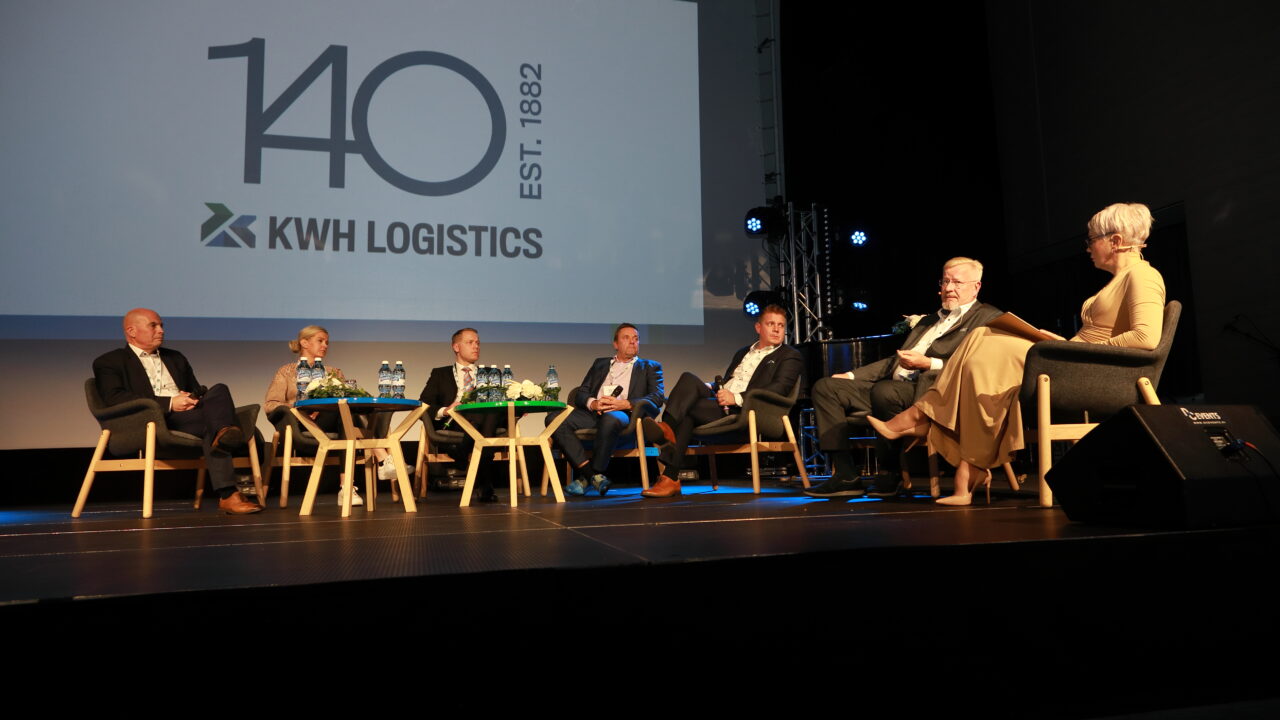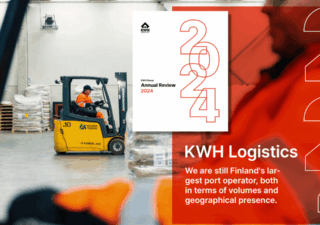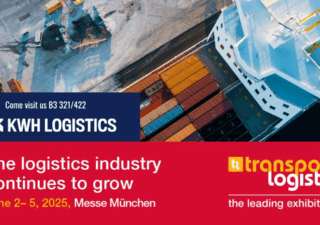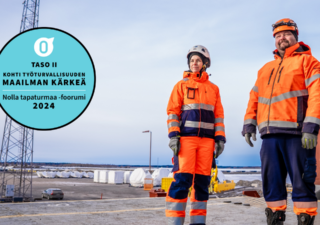KWH Logistics 140 years Seminar in Helsinki
KWH Logistics juhlisti 140 vuotista taivaltaan logistiikan uranuurtajana kutsuvierasseminaarissa 5.10.2022 Helsingissä. Lue lehdistötiedote tästä!
KWH Logistics firade sitt 140-årsjubileum som pionjär inom logistik vid ett gästseminarium den 5.10.2022 i Helsingfors. Läs pressmeddelandet här!
Partnership is more important than ever
KWH Logistics celebrated its 140th anniversary on 5.10.2022 at the Clarion Hotel Helsinki.
The event with two hundred invited guests was a success. In addition to the employees of the business group, there were customers, other partners, and valuable speakers, such as the keynote speakers Risto E.J. Penttilä and Esko Aho. The event also featured a panel discussion, which discussed the effects of the rapidly changing world situation on logistics. The corona pandemic, the war in Ukraine, sanctions, and the closing of borders, as well as the energy crisis and personnel shortages, have repeatedly forced the sector to face major challenges. Finland’s insularity and northern conditions do not make the situation any easier. Transport routes have changed radically, the freight market has seen significant price increases, and renewable energy must be put into use quickly. At the same time, however, it is vital that logistics work without interruption.
The head of the business group, Joakim Laxåback emphasized in his opening speech that Finland, as a remote, small country, cannot manage alone – it is important to continue to enable foreign trade in the future.
“This game requires cooperation,” said Laxåback. “A good partnership is a natural way of working. Especially as the situation becomes increasingly unstable.”
Risto E. J. Penttilä – The Good, the Bad, and the Ugly
The CEO of Nordic West Office and Doctor of Philosophy Risto E.J. Penttilä discussed global scenarios in his speech. No one knows what will happen tomorrow, but envisioning the future helps with preparation. Penttilä presented three of them; the Good, the Bad, and the Ugly. In the most optimistic option, the current situation is brought under control. In the middle, Russia will continue its attacks and we will face the biggest energy crisis since the 70s – we will already be at zero growth next year. The ugly scenario progresses even worse when, for example, more attacks are carried out on critical infrastructure. Penttilä reminds that no scenario will come true as such but envisioning them helps anticipate the future.
“When the world is messed up, instead of thinking outside the box, you have to create boxes and take control of the future by thinking systematically,” states Penttilä.
“It is difficult to influence the whole, but you can be prepared. Difficulties can also be turned into profit, as KWH Logistics has been doing for 140 years.”’
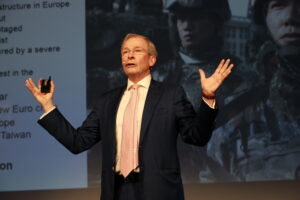
The logistics industry knows how to solve problems
Penttilä’s speech was followed by a panel discussion moderated by Baba Lybeck, where Thomas Doepel, Executive Vice President of Finnlines, Heikki Hellsten, Logistics Manager at SSAB Europe Oy, Eljas Koistinen, VR Transpoint Director, Torbjörn Witting, CEO of the Kokkola Port, and Päivi Wood, Chief Specialist of the Central Chamber of Commerce discussed how logistics professionals and experts can influence the next stage of logistics development. Despite the challenging topic, the panel discussion was positive and highlighted the logistics industry’s ability to adapt and survive. When contingency plans already are already in place, it is faster to implement them. Uncertain situations in particular require planning – one must stay on top of things.
Professor Lauri Ojala of the University of Turku stated in his final summary of the panel that in the future we can see elements of all the scenarios presented by Penttilä, each of which should be prepared for. Since Finland is a small player, adaptation is the most important of the operating models – without forgetting the key influence of political and market players. International dimensions radiate to Finland with varying intensities, and, in addition to the ugly situation, one must be ready to work in a good environment and move things forward. This means, among other things, increasing the attractiveness of the logistics industry in order to solve the personnel shortage. Possibilities for growth and export are also created by the new solutions required to reduce transport emissions, which Finland has the technological know-how to develop.
“The logistics industry is about problem-solving, where you have to be able to utilize your strengths,” says Lauri Ojala. “Recent times have shown that we have very good actors and the ability to see ahead.
Esko Aho – technological developments and geopolitical tensions
In his speech, Esko Aho emphasized that geopolitical factors affect everything. The great boom of globalization is over, and with the war in Ukraine, the pandemic, the financial crisis, and tensions between the US and China, we have woken up to a different reality. However, the situation is not unique. Every decade has had its crises, and when conditions change, they change quickly. One must learn to live with uncertainty. Globalization is not over, even though the rules of the game have changed. What is essential is how to make good use of the situation. When the industrial base is in order, society’s resilience is better. According to Aho, one of the solutions is the application of basic technologies. Logistics must become even smarter. Here, the small size of our country is an advantage.
Digitization is not at its most effective in the United States, for example, but a society the size of Finland is ideal for applying technologies. All areas of expertise must be utilized in digital solutions. For example, Rockefeller’s success story in the 19th century was based on the combination of raw materials, the chemical industry, and railway logistics. Nothing new was actually developed, but the combination created a great success story. The same ability to combine is needed now – a wide range of experts are needed.
 “In September 1944, not many people would have bet on Finland,” Aho reminds. “Nevertheless, we survived the war and have succeeded in building a successful industrial and welfare society that can cope internationally in both good and bad times. In difficult times, a small, agile nation is in a more advantageous position than even larger states in terms of competitiveness – provided that it knows how to proceed skilfully and efficiently.”
“In September 1944, not many people would have bet on Finland,” Aho reminds. “Nevertheless, we survived the war and have succeeded in building a successful industrial and welfare society that can cope internationally in both good and bad times. In difficult times, a small, agile nation is in a more advantageous position than even larger states in terms of competitiveness – provided that it knows how to proceed skilfully and efficiently.”
Markku Mäkipere, Marketing Director of KWH Logistics, summed up the solution-oriented approach that permeated the atmosphere of the hall in his final speech. From the point of view of foreign traffic, Finland is an island – once a hub, now an end point. The freezing of the sea also creates its own challenges. Still, there is no giving up.
“The 140-year-old KWH Logistics has always cherished cooperation, partnership, readiness for change, and innovation. We will continue to act according to these same principles in the future.”
More information about the seminar marketing@kwhlogistics.com
Photos Anne Yrjänä
Best regards,
KWH Logistics
Marketing team









